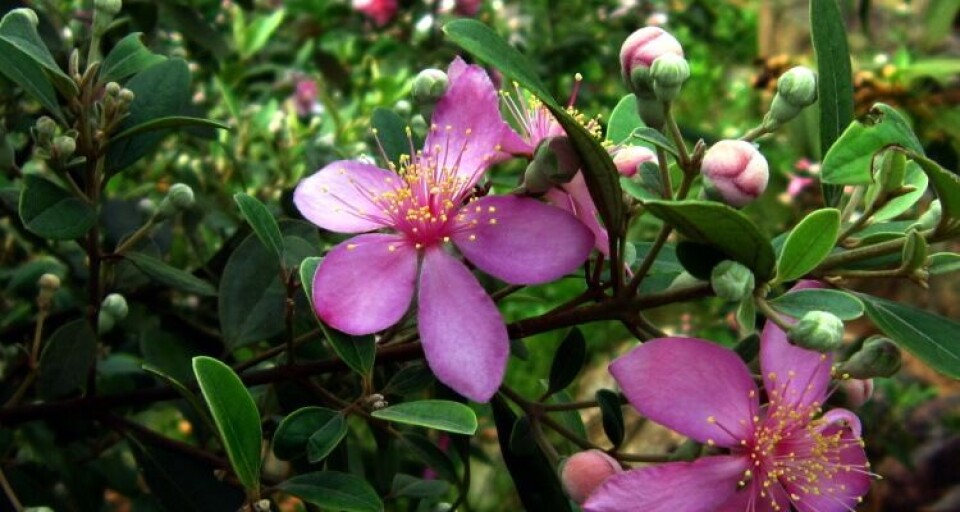
Plant's potential as alternative medicine for fish
Scientists have discovered that a compound extracted from the leaves of Rhodomyrtus tomentosa, a Thai medicinal plant, has immunostimulating and anti-inflammatory properties when tested in vitro in rainbow trout macrophages, the white blood cells that ingest foreign particles and infectious microorganisms.
The use of medicinal plants as an alternative to control diseases and improve fish health has gained interest due to growing concern about the harmful effects of antibiotics and chemicals on aquaculture species and the environment.
Studies both in vivo and in vitro report that some medicinal plants have a positive impact on the immune response of fish, which increases the degree of disease resistance and tolerance to stress, acting as immunomodulators.
Rodomirtone is a compound extracted from the leaves of R. tomentosa (pink myrtle), a Thai medicinal plant that has immunostimulating, antioxidant, anti-inflammatory and antimicrobial properties.
Encouraging results in humans
While its effects have shown encouraging results in humans and other mammals such as mice and cattle, its potential in aquatic animals has not yet been investigated.
In this context, scientists from the Prince of Songkla University, Thailand, and the Autonomous University of Barcelona, Spain, conducted an investigation to determine the immunomodulatory and anti-inflammatory effects of R. tomentosa, and its active compound, rodomirtone, on macrophages isolated from the rainbow trout kidney.
For this, the researchers exposed macrophages to a solution of R. tomentosa and purified rodomirtone for four and 24 hours and measured changes in the expression of genes related to the innate immune response, inflammatory and anti-inflammatory cytokines and reactive oxygen species (ROS).
Antioxidant enzyme
In their results they discovered that both the solution of R. tormentosa and rodomirtone induced an increase in the expression of pro-inflammatory cytokines (il1?, il8, and tnfa), anti-inflammatory cytokines (il10 and tgf?), inducible enzymes (inos, cox2, and arginase) and an antioxidant enzyme (gpx1).
In another trial where macrophages co-existed with both extracts, and lipopolysaccharides (lps) of a bacterium to emulate the inflammatory response to pathogens, they observed a significant reduction in the expression of genes related to the inflammatory process (il1?, il8, tnf?, inos, saa, hepcidin, and gpx1), suggesting anti-inflammatory effects.
Protective mechanism
In addition, exposure to both natural plant products caused a reduction in ROS levels produced by macrophages acting as a protective mechanism against cell damage caused by oxidative stress during the inflammatory response.
The authors stipulate that this study extends the information on the immunomodulatory and anti-inflammatory effects of plant products as possible potentiators of fish immunity, thus opening the possibility of using them as a tool for health management in aquaculture.
The full article can be read here (paid article).























































